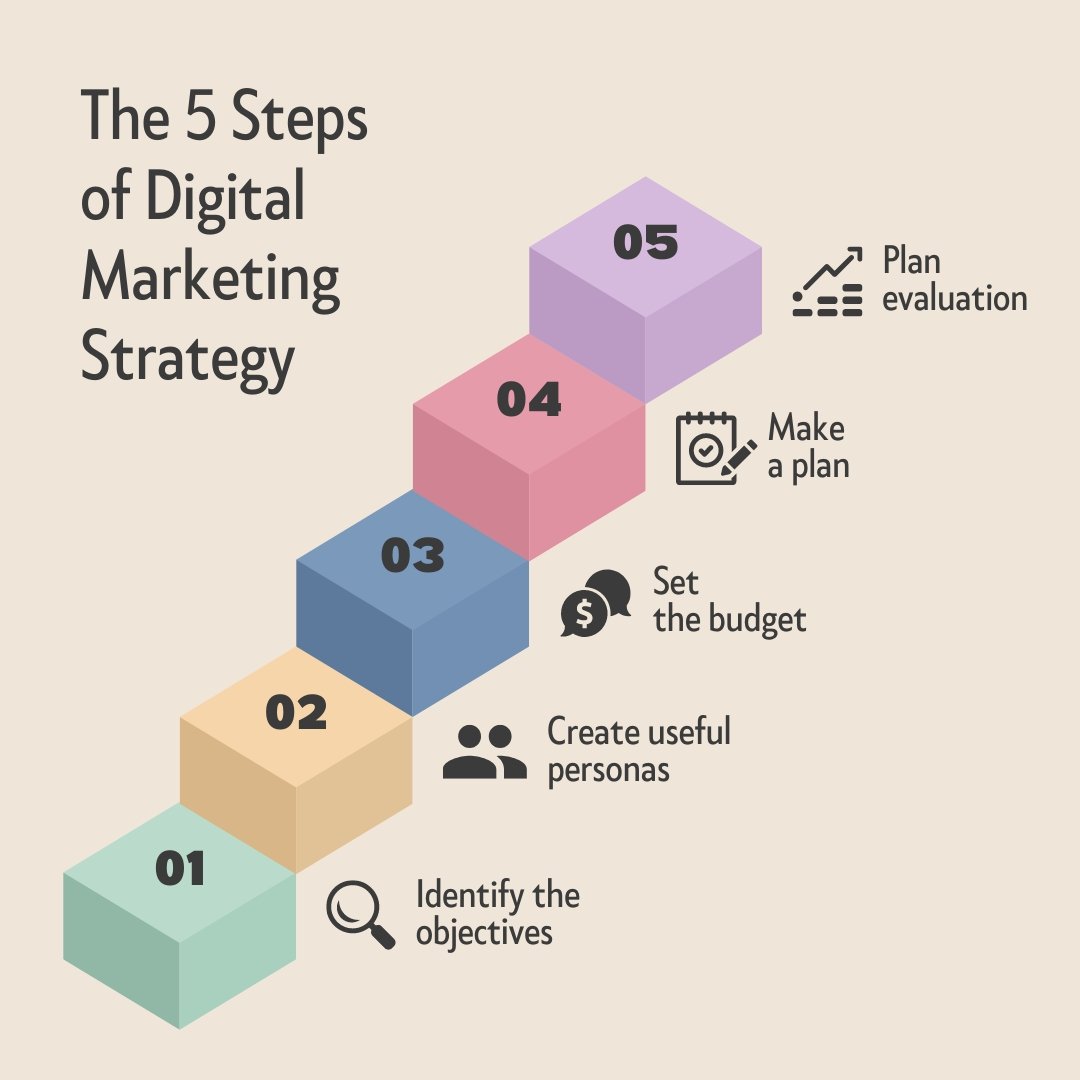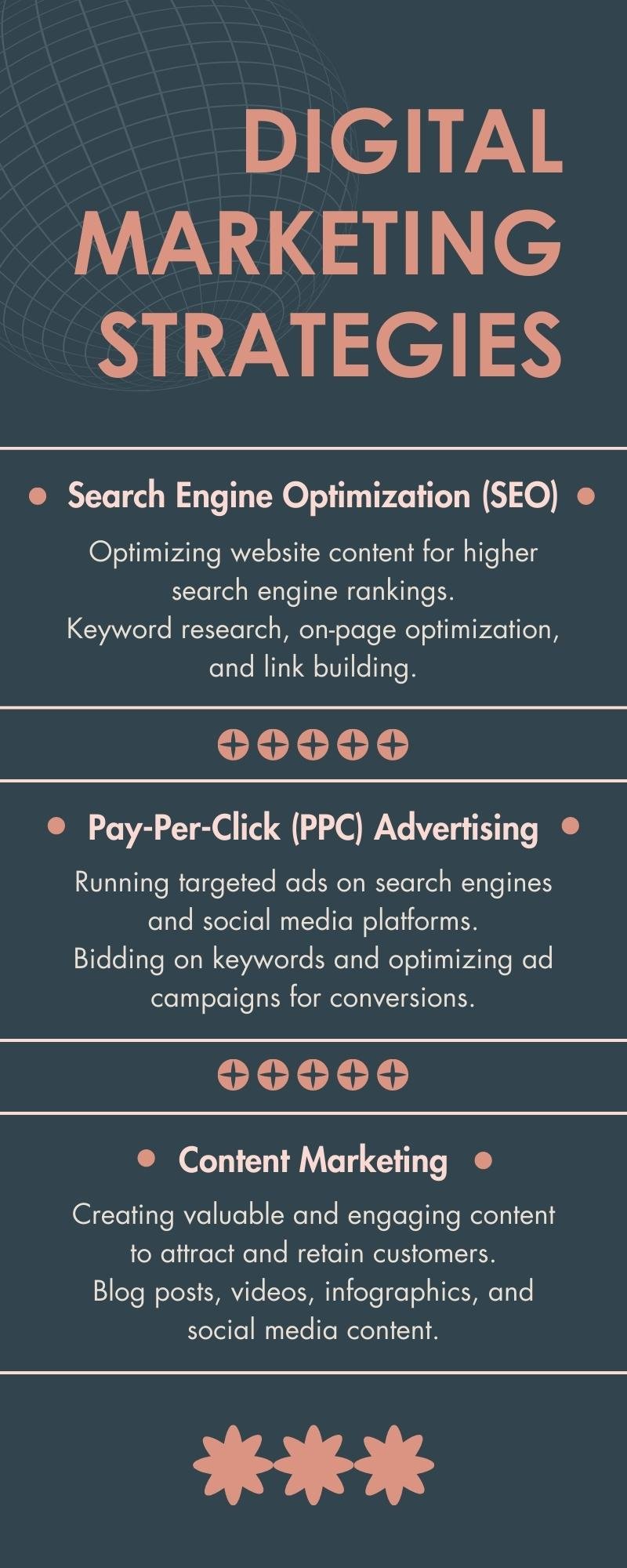Digital Marketing Essentials: An In-Depth Guide
The worldwide digital advertising and marketing sector is anticipated to hit $786.2 billion by 2026. Presently, there are over 167,000 digital marketing job vacancies in the U.S. alone. As businesses of all types are adopting digital marketing strategies to broaden their reach, it’s the perfect opportunity for aspiring professionals to acquire and refine sought-after digital marketing skills and carve out a rewarding career. This article will delve into the basics of digital marketing, equipping professionals with the crucial knowledge required to excel in this thriving field.
Digital Marketing: Definition and Significance
Digital marketing is the practice of promoting and advertising a brand’s offerings via digital channels such as social media, websites, and email. Marketers can orchestrate influential digital marketing campaigns using inventive strategies like email marketing, pay-per-click, social media marketing, and affiliate marketing. These strategies allow them to generate brand awareness and reach their target audience.

Before we delve into the core principles of digital marketing, let’s understand why digital marketing is experiencing such rapid growth:
- Broad Audience: Traditional marketing methods are typically confined to a specific demographic. In contrast, digital marketing allows marketers to target a broader audience and promote a business on a global scale.
- Competing with Major Players: By reaching a wider audience, digital marketing strategies enable small businesses to extend their market reach and compete with larger market players.
- Reaching Potential Customers: Relying solely on traditional marketing tactics like billboards and print ads can make it difficult for brands to reach potential customers. However, with digital marketing, it’s easy to identify and reach the target audience across all digital channels and drive successful campaign outcomes.
- Tracking Campaign Performance: It’s challenging to track the performance of traditional marketing campaigns. For instance, it’s hard to determine how many people see a specific billboard and ultimately make a purchase. On the other hand, with digital marketing, it’s possible to track key campaign metrics such as social media presence, web traffic, and activity with relevant tools.
- High Return on Investment (ROI): According to Litmus, the ROI for email marketing stands at 36x. This means that for every $1 brands spend on email marketing, they receive $36 in return. Hence, companies are investing in digital marketing opportunities to elevate their businesses.
Digital Marketing Types

By developing a comprehensive marketing strategy that includes promoting a brand using various types of digital marketing techniques, marketers can achieve the best results. Here are the top three different types of digital marketing methodologies that are both affordable and yield high conversion rates for businesses.
- Search Engine Optimisation (SEO): SEO is the strategy of creating content in a way that makes search engines like Google rank the webpage high on the search engine results page (SERP). Google uses algorithms to determine how relevant the webpage is to the user’s search terms. Since these algorithms are continuously updated, SEO tactics must also be modified frequently to remain effective.
- Content Marketing: Content marketing refers to informative, valuable content such as blog posts, how-to videos, and other educational resources. This type of marketing helps businesses interact with their audience and respond to their demand and queries. It can also help in generating leads and closing sales.
- Social Media Marketing: In this case, social media platforms are used as digital marketing mediums. To reach new audiences, businesses can adopt an online advertising strategy and purchase advertisements on social sites. Alternatively, to keep it affordable, they can build a company profile and create social media posts to promote new items, deals, and freshly published content.
Digital Marketing Channels and Tactics
Digital marketing channels are the digital media/platforms that marketers use to deliver digital marketing assets. These digital channels include email, websites, social media, live chat, and video chat. On the other hand, digital marketing tactics are methods that marketers use to optimise and deliver their marketing efforts using a combination of the above digital channels. Some common digital marketing tactics include writing blog posts, sending tweets, responding to emails, reaching out to influencers, and repurposing content.
Fundamentals of Digital Marketing
Digital marketing involves many fundamental concepts which you should master to implement the most effective marketing practices and run successful campaigns. Let’s explore some of the most common ones in this section:
- Understanding Your Customers: Developing a customer-centric marketing approach is crucial for designing effective digital campaigns and generating more leads for businesses. Moreover, understanding your customers is the key to delivering products and services that are more aligned with their needs and demands to foster strong customer relationships and build a better brand image.
- Measurement and Metrics: Digital marketing metrics are the Key Performance Indicators (KPIs) that marketers use to track and measure the performance of a digital marketing campaign. Some of these KPIs employed to measure a digital strategy include total website traffic, inbound links, click-through rates, cost per acquisition, cost per conversion, net promoter score, and engagement rates.
- Conversion-Rate Optimization: Increasing the percentage of conversions from a website or mobile app is known as Conversion Rate Optimization (CRO). It involves marketers generating ideas for new features/improving the existing ones on a website or app, and then testing those hypotheses using A/B and multivariate testing methods to confirm their effectiveness.
- Organic Channels: Digital marketing using organic channels refers to all the content posted on social media (images, videos, blog posts) that do not involve any paid subscription. These are typically free-of-cost channels that marketers can leverage to build a customer base and engage with them regularly. Unlike paid media, this is a long-term strategy that may not yield immediate results but is helpful to build brand awareness and reputation.
- Paid Channels: Any marketing channels where businesses need to pay money to get featured online are called paid channels. Some examples of paid channels include online advertising (Facebook/Instagram Ads), Google AdWords, YouTube video promotion, and influencer marketing. What all of these paid channels have in common is that they can help businesses speed up growth to a great extent by delivering immediate results.
- Email Marketing: Email marketing is an effective way to communicate with existing and potential customers. It involves targeting an audience with generic emails for driving traffic to the website and increasing conversion rates. Most email marketing campaigns constitute emails that inform recipients of fresh offers and discounts to capture their interest. However, email marketing tools (such as Mailchimp) help in generating emails and sending them to a list of potential leads to simplify the job of a marketer.
- Affiliate Marketing: Affiliate marketing involves hiring a third party to promote a product and paying a commission to them on every sale made. The affiliate can be an individual or an entity. The affiliate advertises the product (good or service) using any social platform, such as a blog or a YouTube video. When a buyer clicks on the affiliate link for the product and subsequently purchases it, the affiliate gets compensated for it through commission.
- Referral Marketing: Referral marketing is a marketing strategy where a company rewards its current customers for successfully bringing new customers (family, friends, and other contacts) into the business. This is a tactic that makes use of recommendations and word of mouth to grow the customer base of a business. Some well-known companies that have successfully leveraged referral-based marketing schemes include Dropbox, Tesla, Airbnb, and Uber.
In conclusion, understanding the fundamentals of digital marketing is crucial in today’s digital age. Whether you’re a seasoned marketer or a novice in the field, mastering these principles can significantly enhance your marketing strategies and drive business growth. With the digital landscape continuously evolving, staying updated with the latest trends and techniques is paramount. By enrolling in a comprehensive course like the ones offered by Emeritus, you can stay ahead of the curve and make your mark in the dynamic world of digital marketing. Remember, the digital marketing field is vast and full of opportunities – all it takes is the right knowledge and skills to tap into its potential.
